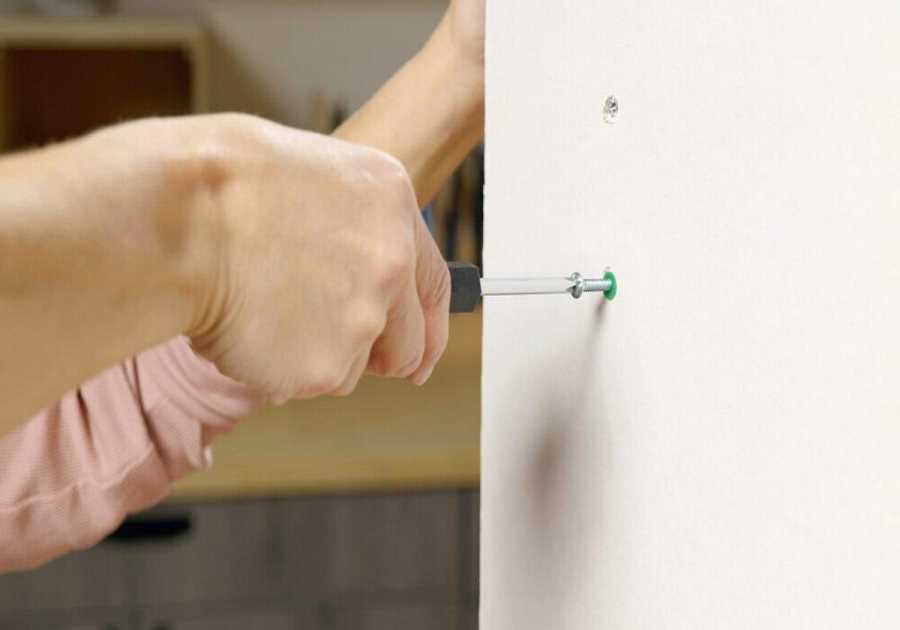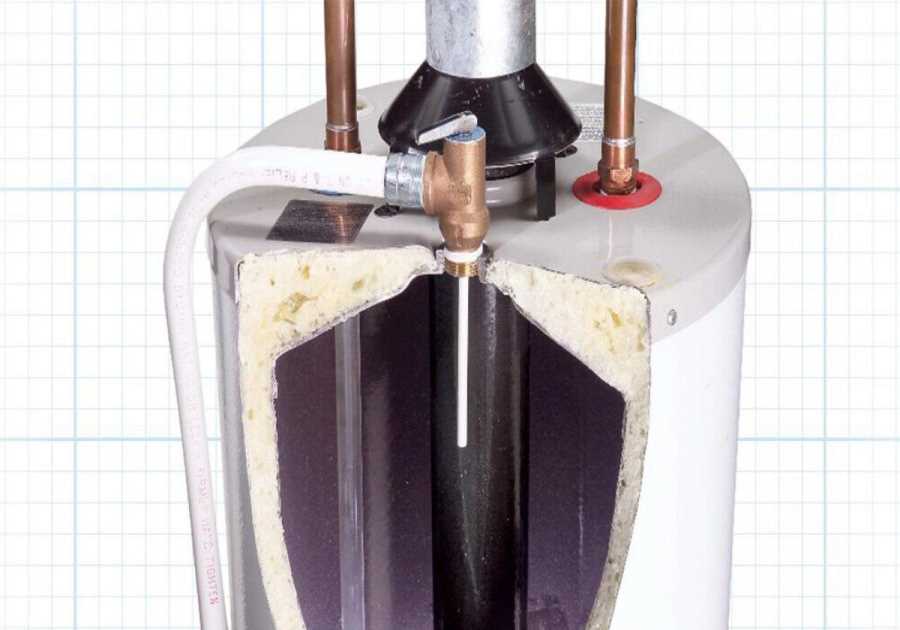If you’re bedeviled by rust stains in your bathroom, be thankful you don’t live on Mars, because the entire surface of the planet is covered in it.
Rust is a compound known as ferric oxide or iron oxide. It forms when iron combines with oxygen in the presence of water.
Where the oxygen and water came from on Mars to turn the iron-rich surface rusty is a question scientists haven’t determined. But on Earth, there’s no mystery. Oxygen is abundant in the atmosphere, and so is water. So there’s no shortage of rust, especially in bathrooms.
But why do rust stains show up on even non-metallic surfaces in the bathroom? Because iron is present in most water supplies. When water evaporates on a surface, it leaves a film of iron that quickly oxidizes to form a tenacious reddish-brown rust.
We checked with Elizabeth Shields, operations manager of Super Cleaning Service Louisville, for tips on removing rust stains from bathroom surfaces and fixtures. She recommended several acidic cleaners weak enough to do the job safely. She also suggested a cleaning method involving aluminum foil that sounds like it wouldn’t work, but actually does.
Scrub With Lemon Juice and Salt
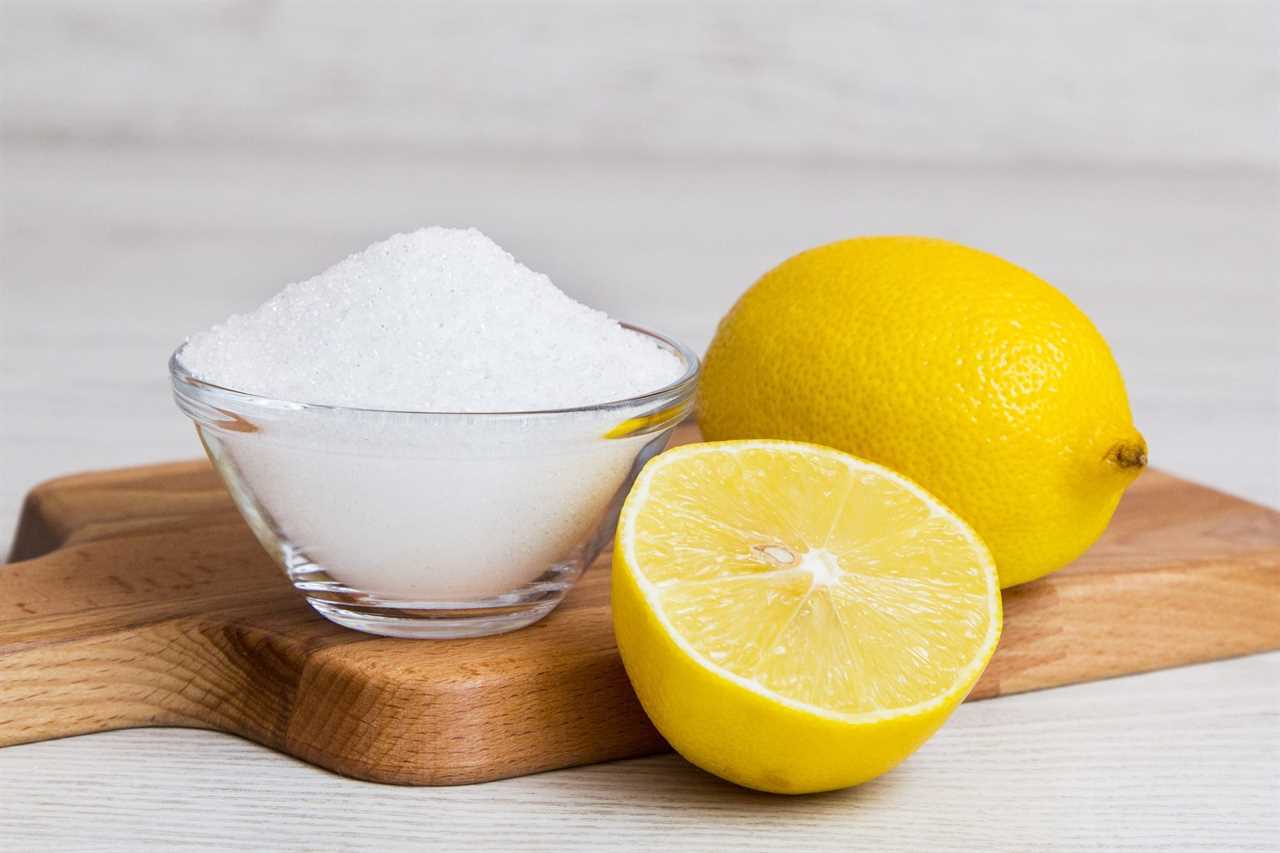
You’ll need:
- Lemon juice;
- Table salt;
- A sponge or soft brush.
If a juice or condiment is sour or tangy, it’s probably acidic, and few juices are more sour than lemon juice. It contains citric acid, which is strong enough to cut through rust while still safe to use on most materials. Add salt as an abrasive, and you have one of the most widely used rust cutters.
“Squeeze lemon juice over the rusted area and sprinkle salt,” Shields says. “Let it sit for an hour, then scrub with a sponge or soft brush.”
She recommends this treatment particularly for porcelain tiles and bathroom fixtures like toilets, bathtubs and sinks. Salt is corrosive enough to damage metal, though, so you’ll need something else for faucets, towel racks and curtain rods.
Clean Stainless Steel With Aluminum Foil
You’ll need:
- Aluminum foil;
- Clean water.
“My favorite hack,” says Shields, “is grabbing some aluminum foil, giving it a crumple so it forms a ball, and dipping it in water. This helps it glide over the stainless steel without scratching it up. Here are a few tips to remove rust from stainless steel.
“Now with the damp foil ball, scrub the rust using gentle circular motions. You’ll start to see the rust lift away. Once the rust is gone, give the area a rinse with clean water and pat it dry with a cloth.”
This method works because the oxygen atoms in iron oxide are electrically charged, and they’re more strongly attracted to aluminum than iron. Once the oxygen atoms are stripped away, the iron that remains is easy to remove.
Aluminum doesn’t rust, but it does form a powdery film of aluminum oxide that washes right off when you’re done.
Use Bar Keepers Friend on Fiberglass
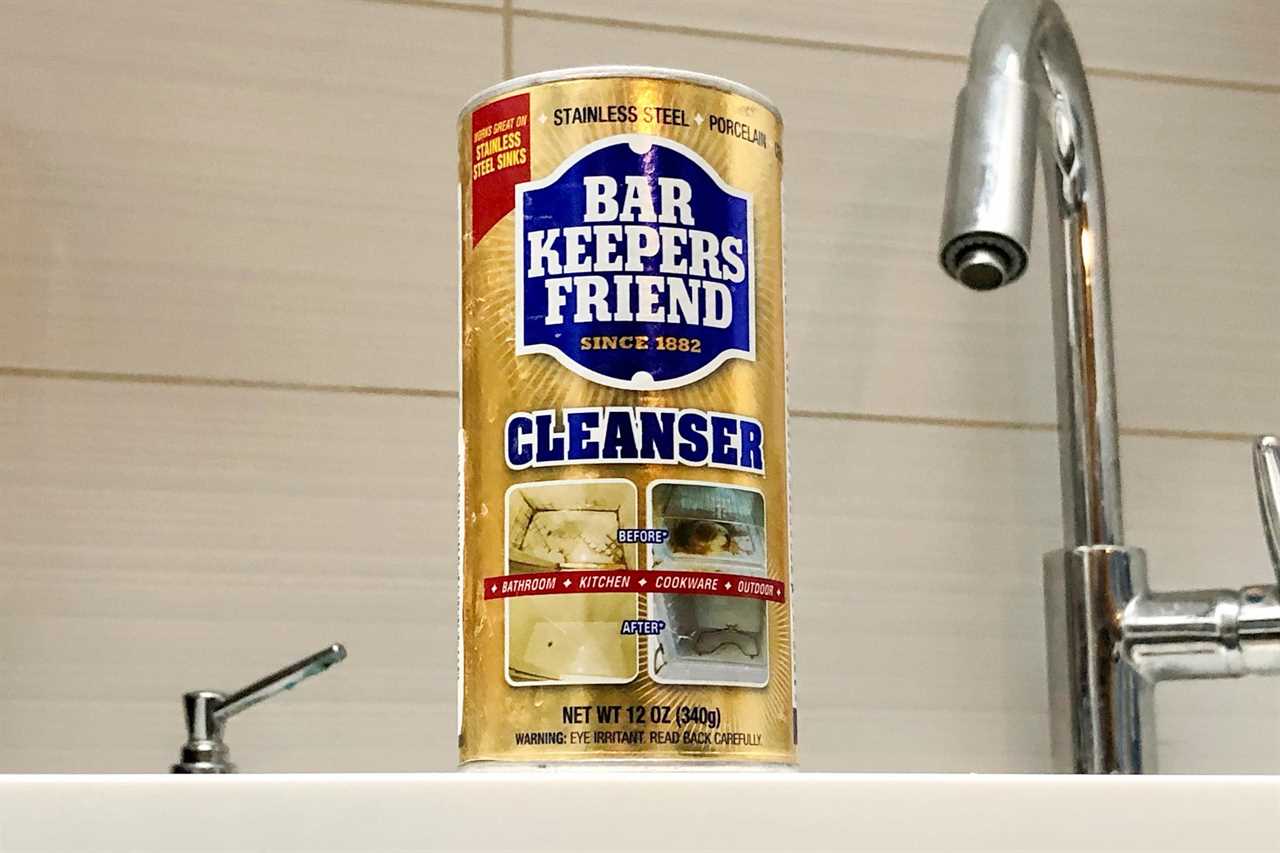
You’ll need:
- Bar Keepers Friend;
- A soft cloth or sponge;
- Clean water.
Bar Keepers Friend is a scouring powder that combines oxalic acid, a well-known rust-cutting cleaner, with feldspar, a mild abrasive. Shields recommends it for removing rust stains from fiberglass.
Here’s what to do, according to Shields:
“Sprinkle or squeeze a small amount of Bar Keepers Friend powder or liquid directly onto the rust stains. Be precise in applying it only to the rusted areas. Let it sit for a few minutes to allow the cleaning agents in the product to work on breaking down the rust.
“Scrub in circular or back-and-forth motions with a soft cloth or sponge. Rinse the area thoroughly with clean water, making sure you’ve banished all traces of the cleaning product.”
Remove Rust With Hydrogen Peroxide
You’ll need:
- Household strength (3%) hydrogen peroxide;
- Paper towels or or soft cloth;
- A sponge;
- Clean water.
The hydrogen peroxide in your medicine cabinet has a pH between three and six. That makes it just slightly acidic, but still strong enough to dissolve rust if you give it enough time. Shields recommends this method for cleaning acrylic, which can be damaged by stronger acids or too much scrubbing.
“Pour a small amount of hydrogen peroxide into a container,” she says. “Dip your cloth or paper towel until it’s thoroughly saturated but not dripping. Carefully place the saturated cloth directly onto the rust stain. It should cover the entire rust stain area. Leave the cloth in place for a few hours or even overnight.”
Once you notice the rust dissolving, she says “use a soft cloth or sponge to gently scrub the rusted area. The rust should come off relatively easily. Rinse with clean water and dry with a clean cloth.”
Soak Small Rusty Metal Parts in Coke
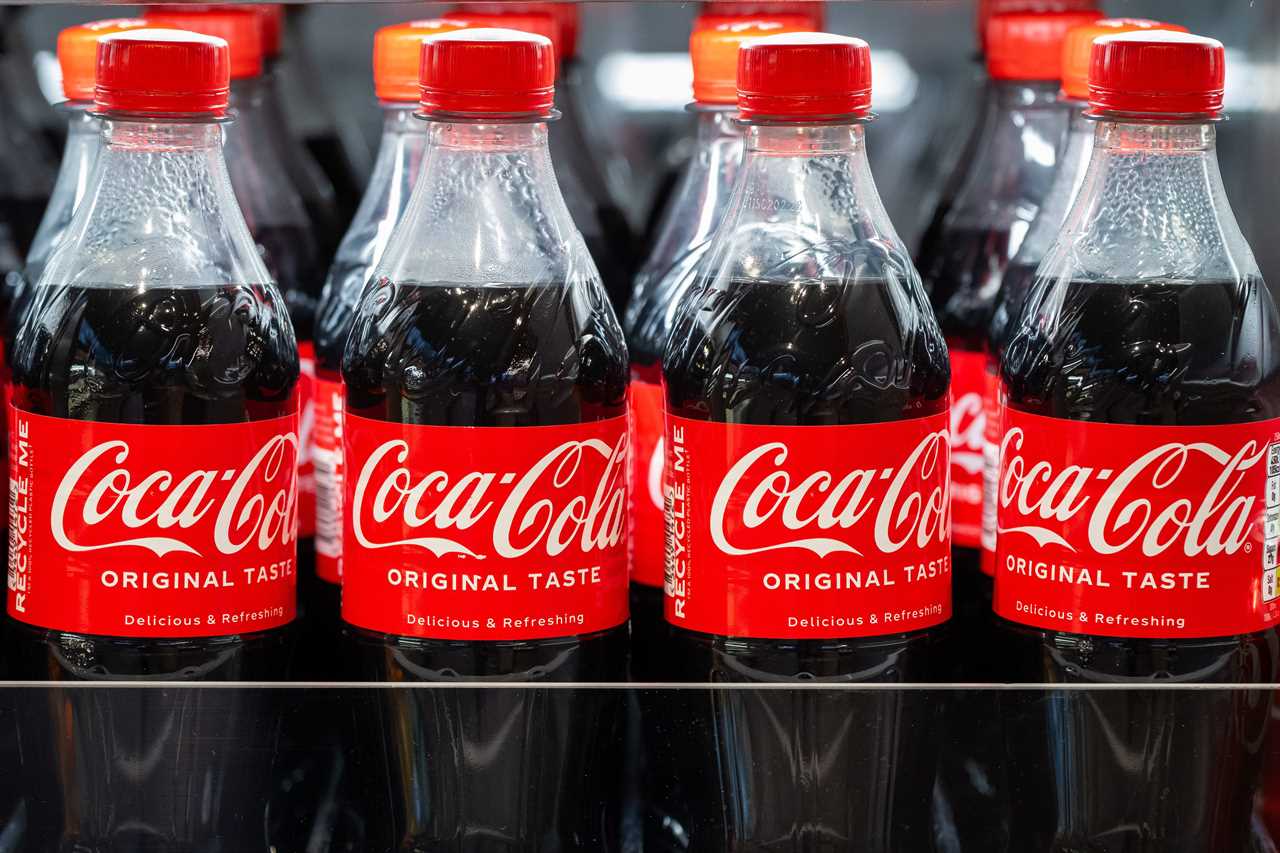
This tip comes from Josh Rudin, who owns and operates ASAP Restoration LLCin Phoenix, Arizona.
You’ll need:
- Coca-Cola;
- A bowl or jar.
“It sounds crazy, but this tasty magic beverage can also be a powerful cleaning agent, when used correctly,” Rudin says. “Coca-Cola is especially good at removing rust stains from metal materials, but it can work on a variety of surfaces too.”
Coca-Cola and beverages like it work because they contain phosphoric acid. Fill a jar or bowl with fresh Coke, drop in rusty metal parts and retrieve them when the rust vanishes, which can take a few hours to a day or two.
Repurpose Resin Bed Cleaner
You’ll need:
- Resin bed cleaner;
- A foam brush;
- Clean water.
If you have a water softener, it probably has a resin bed, a collection of thousands of tiny plastic beads that separate rust and other minerals from the water by ionic attraction.
You must clean this periodically by flushing resin bed cleaner through the system. The cleaner also works on rust in your bathroom. Some common products are Rust Out and Res Care.
Apply the cleaner to the rust with a foam brush. It dissolves rust quickly in most cases, in only a few minutes and you simply rinse it off with water. Because no scrubbing is involved, this method is safe for porcelain, acrylic, fiberglass and any other material that can be scratched or damaged.
Did you miss our previous article...
https://rsssuperfeeds.com/life-hacks/the-best-tankless-water-heating-system-for-hot-water-on-demand



